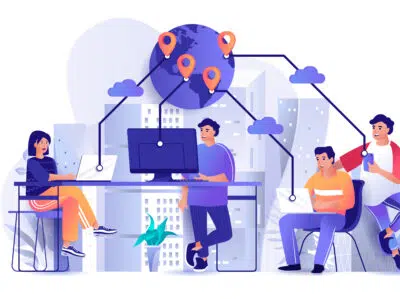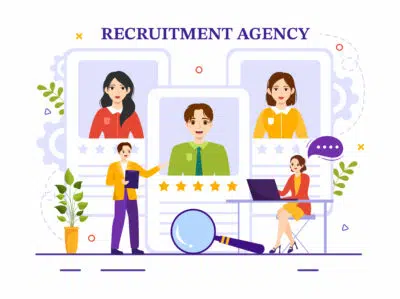What Does the Future Hold for AI-Enabled Recruitment Processes?

DEI-LOGS with Anshul Raj Khurana, India TA Leader at Booking Holdings (NASDAQ: BKNG)
June 21, 2024
Manufacturing, EV, Engineering lead hiring growth in 2024?
June 25, 2024
The role of artificial intelligence (AI) and Machine Learning (ML)-based systems is steadily increasing in recruitment. Studies show that AI is expected to transform the recruitment ecosystem, impacting processes, recruiters and candidates. There are several benefits to leveraging AI capabilities for hiring.
I can significantly decrease administrative overload during the hiring process. For instance, a recruiter can use a prompt to generate a job description in a matter of seconds; he or she can then tweak it to suit the requirements of the business. Recruiters can even feed candidate resumes to compare against job descriptions and find the candidates that fit best. With a shortlist of best-fit candidates, hiring time is highly reduced, as is the cost of hiring. And, we have just about scratched the surface. The global AI recruitment market is expected to grow at a compound annual growth rate (CAGR) of 4.89 per cent and is expected to reach a valuation of nearly USD 840 million by 2032. AI is expected to disrupt the recruitment landscape. Let us see how.
Gazing into the crystal ball
Enhancing recruitment automation: AI will be used in high-volume, pre-screening procedures, where job requirements are fairly fixed. Generative AI apps can be used to create pre-screening questionnaires and even skill assessments for specific jobs. AI-based tools can be used to calculate scores, evaluate candidate responses and make recommendations. In high-volume hiring, these tools can be a game changer for recruiters, helping them make data-driven decisions. AI can reduce hiring bias by comparing skill sets and scores rather than information such as schools, qualifications, etc., which are part of a typical traditional recruiting process. Chatbots can be used to automatically schedule interviews, saving valuable recruiter time. AI-based apps can provide a talent pipeline with recommendations of eligible candidates and matching skills, based on the job requirements. They might be able to provide matching “candidate clones”, effectively reducing the burden of candidate sourcing.
Predictive analysis for data-driven decisions: Going forward, recruiters will be able to use AI-based systems to determine whether candidates will be successful at the job they are chosen for. AI-based applications can draw on several diverse inputs, such as past experience, skill sets and patterns, and predict, for example, how long a person may stay at the job. This can help recruiters make better hiring decisions.
Improving candidate experience: Hiring the best talent is not just about finding the right candidates but also keeping them engaged during the recruitment process. AI-driven chatbots can be used to answer candidate queries; the chatbots are available 24x7. These conversational chatbots can also direct candidates to forms and portals, making the hiring process more convenient and seamless. Based on their search history, location, professional profile and other such criteria, AI can also be used to provide dynamic content to candidates.
Minimising bias with AI: AI tools can reduce hiring bias based on factors such as race, gender or ethnicity. Candidate screening with AI helps to identify candidates based on skills and qualifications, rather than, let us say, the region they belong to. This bias-free process provides an even playing field for all candidates, which, in turn, results in a more diverse workforce. AI can help businesses meet their diversity and inclusion goals and reduce any unconscious bias.
Gather intelligent insights: Recruiters can also garner data-driven insights with AI-based applications. AI can provide information about current and future trends for hiring, help recruiters discover candidates and generate information about the likely intent of candidates. AI-powered applicant tracking systems (ATS) will be able to predict the probability of candidate acceptance and also how long they are likely to remain in the company.
While there is little doubt about the transformative potential of AI in recruitment, companies must proceed with caution. AI-based recruitment systems must comply with data privacy and regulatory requirements and companies must invest in robust data protection mechanisms. Ethical considerations around AI should be given the utmost importance. AI-based recruitment apps need to be fair and just, and companies must be transparent about their usage. Careernet can help companies navigate the complexities and derive the benefits of AI-driven recruitment. Leveraging AI with the necessary human intervention will help companies optimise the recruitment process, hire the best talent and create a diverse workforce.


